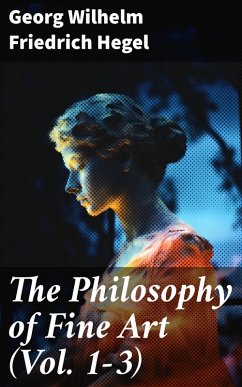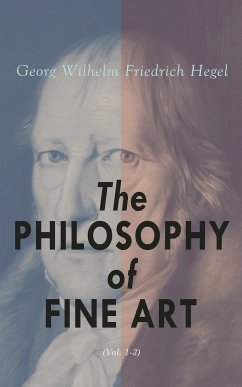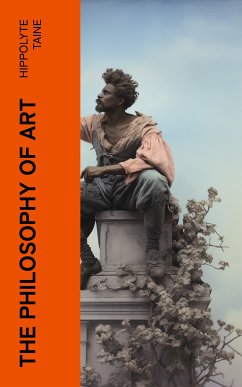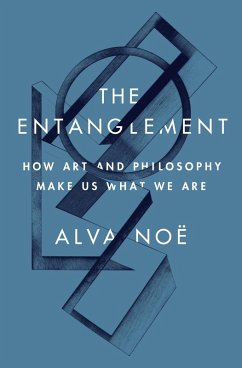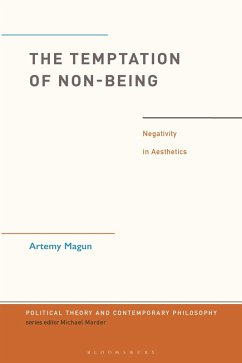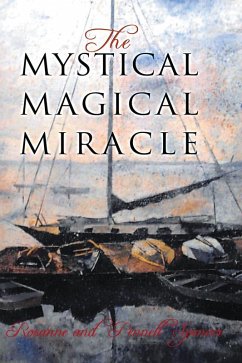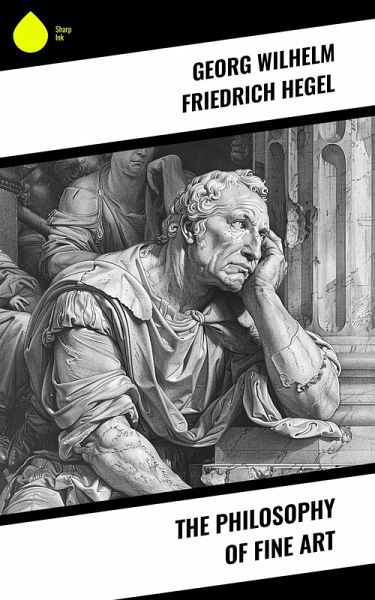
The Philosophy of Fine Art (eBook, ePUB)
Versandkostenfrei!
Sofort per Download lieferbar
2,13 €
inkl. MwSt.
Weitere Ausgaben:

PAYBACK Punkte
0 °P sammeln!
In "The Philosophy of Fine Art," Georg Wilhelm Friedrich Hegel presents a profound exploration of aesthetics, positioning art as a vital expression of the human spirit and cultural evolution. Written in a period marked by rapid intellectual upheaval and the flourishing of Romanticism, Hegel's work integrates a detailed analytical framework characterized by dialectical reasoning. He articulates a comprehensive theory of beauty, categorizing art into various forms-symbolic, classical, and romantic-while elucidating how they reflect the historical development of human consciousness and freedom. H...
In "The Philosophy of Fine Art," Georg Wilhelm Friedrich Hegel presents a profound exploration of aesthetics, positioning art as a vital expression of the human spirit and cultural evolution. Written in a period marked by rapid intellectual upheaval and the flourishing of Romanticism, Hegel's work integrates a detailed analytical framework characterized by dialectical reasoning. He articulates a comprehensive theory of beauty, categorizing art into various forms-symbolic, classical, and romantic-while elucidating how they reflect the historical development of human consciousness and freedom. Hegel's prose, rich and intricate, reflects the complexities of philosophical thought, urging the reader to contemplate the interconnectedness of art, society, and the individual soul. Georg Wilhelm Friedrich Hegel, born in 1770 in Stuttgart, was a pivotal figure in German Idealism and an influential philosopher whose ideas shaped contemporary thought. His academic pursuits were deeply rooted in the interplay of rationality and historical development, capturing a moment when art was increasingly seen as a vehicle for personal and social emancipation. Hegel's background in theology and philosophy provided fertile ground for his exploration of fine art, which he viewed as a manifestation of absolute spirit. I highly recommend "The Philosophy of Fine Art" to any scholar or enthusiast of philosophy and art who seeks to understand the deep and intricate connections between aesthetics, culture, and human experience. Hegel's work invites readers to engage with art not merely as an object of beauty, but as a profound reflection of the human condition and a catalyst for societal development.
Dieser Download kann aus rechtlichen Gründen nur mit Rechnungsadresse in A, B, BG, CY, CZ, D, DK, EW, E, FIN, F, GR, HR, H, IRL, I, LT, L, LR, M, NL, PL, P, R, S, SLO, SK ausgeliefert werden.




